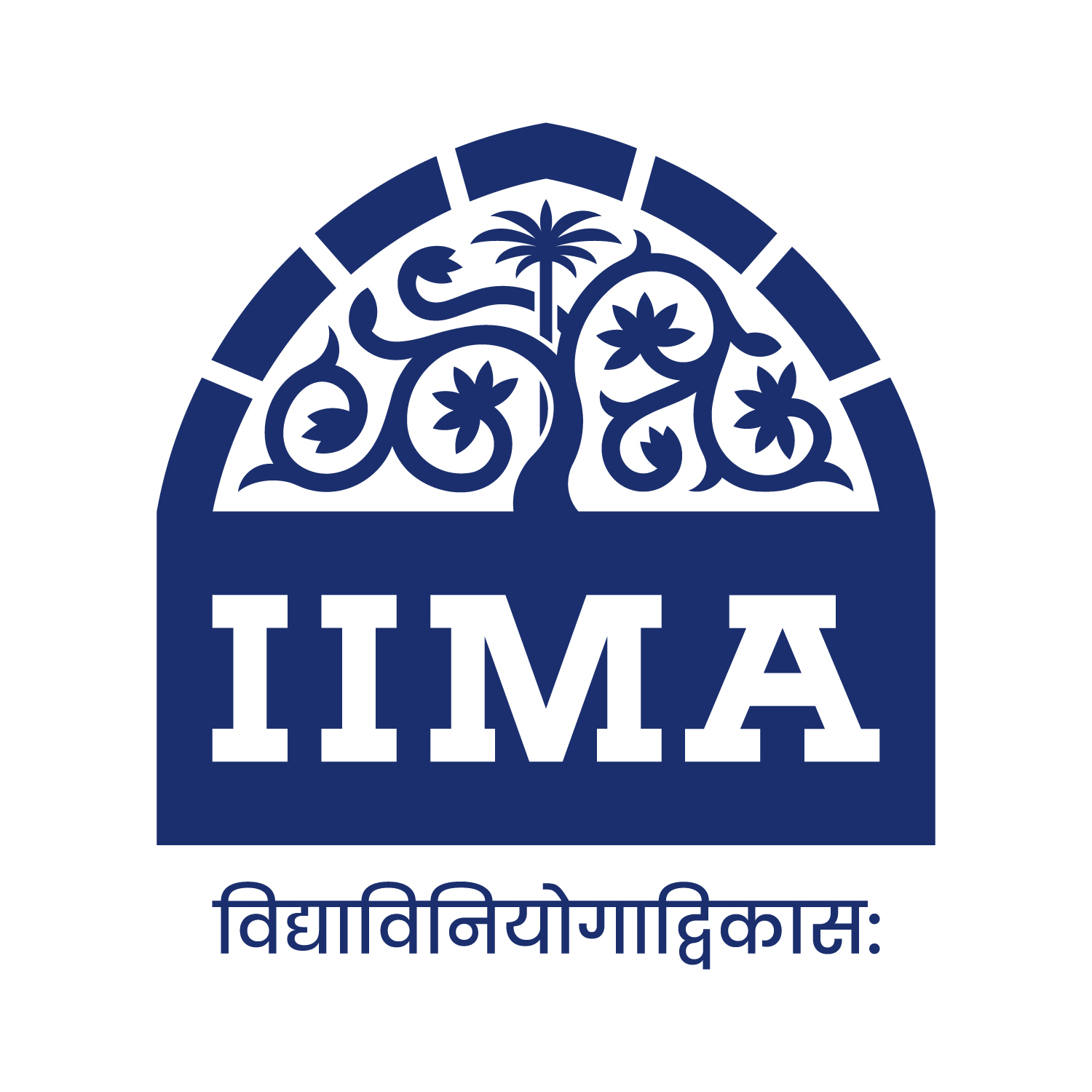Special Feature
The Evolving Landscape of Management Education: Adapting to Stay Relevant and Valuable
Vaibhav Surana PGP 18

Caption: Image by jcomp on Freepik
Management education has long been considered a cornerstone of professional success, offering individuals the knowledge and skills necessary to excel in the dynamic world of business. However, in recent years, the nature of management education has faced significant challenges that threaten its relevance and value in today’s rapidly changing business environment. The advent of generative AI, which is only going to get even better, has threatened even white collar jobs like those of managers and coders that were once considered safer as compared to blue collar jobs involving more labour.
This essay attempts to explore some aspects of the evolving landscape of management education and how institutes imparting it can address the issue to remain relevant and valuable. Most of the anecdotes link directly to my own hands on experience with management education and its outcomes.
The Obsolete Nature of Traditional Management Education
- The Gap between Theory and Practice
One of the most significant criticisms of traditional management education is the gap that exists between theoretical knowledge and practical application. Many management programs focus heavily on theoretical concepts and case studies, which, while valuable, may not adequately prepare students for the real-world challenges of management. This disconnect between theory and practice can result in graduates who lack the practical skills needed to navigate complex business environments. For instance, during my time at IIMA, while we delved deep into case studies and theoretical frameworks, there were limited opportunities to directly engage with industry professionals or tackle real-time business challenges. This lack of hands-on experience sometimes left me feeling unprepared, especially during the times of summer internship, when confronted with the complexities and uncertainties of actual management situations.
- Failure to Adapt to Technological Advances
The rapid advancement of technology is transforming the business landscape at an unprecedented pace. Unfortunately, many management programs struggle to keep up with these changes. Graduates may find themselves ill-equipped to harness the power of emerging technologies, such as artificial intelligence, blockchain, and big data analytics, which are increasingly integral to modern business operations. Furthermore, while management institutes do offer workshops or courses on bridging the information gap with current technological advances, these initiatives often fall short of providing comprehensive training. For example, while there may be a course on data analytics, it might not delve deep enough into specific tools and techniques that are currently in demand by employers.
- Inflexible Curriculum
Traditional management education often adheres to rigid curricula that may not reflect the evolving needs of the business world. These programs may lack the agility to adapt quickly to emerging trends, leaving graduates with outdated knowledge and skills. This is more prominent in run-of-the-mill management institutes, which often lack even basic effort and initiative in addressing this challenge.
- Lack of Diversity and Inclusivity
The traditional model of management education has often been criticized for its lack of diversity and inclusivity. This can result in a narrow perspective and limited exposure to different cultures and backgrounds, which is detrimental in an increasingly globalized and diverse business world. The business suit, once a visible monopoly of a few, ought no longer be a fiefdom of the elite, as global companies now more than ever, are eager to rapidly inculcate varying points of view into both their operations and management style.
- Ignoring Soft Skills
While technical knowledge is crucial, soft skills such as leadership, communication, emotional intelligence, and adaptability are equally essential for effective management. Many management programs prioritize technical skills over soft skills, leaving graduates unprepared for the interpersonal and leadership challenges they may face in their careers.
Addressing the Issue: How Management Institutes Can Remain Relevant and Valuable
- Integrating Practical Experience
Management institutes should bridge the gap between theory and practice by integrating practical experience into their programs. This could involve internships, case competitions, or projects with real companies. Providing students with opportunities to apply their knowledge in real-world settings enhances their readiness for professional challenges. A good experiment during my time at IIMA, that helped achieve this to some extent, was the ELAB course floated in collaboration with CIIE, that gave groups of students the task of running an actual business on campus for the entire duration of a term with a given corpus of money, and document their journey along the way. More such initiatives must be encouraged and their feedback taken regularly from students and professors alike.
- Embracing Technology

Caption: Image by freepik
To remain relevant, management education must embrace technology and adapt to the digital age. Incorporating courses on emerging technologies, data analytics, and digital marketing into the curriculum can equip graduates with the skills needed to thrive in technology-driven industries. While IIMA and other such premier institutes are at the forefront of absorbing latest technological advances into the curriculum, a lot of it is driven by individual passions of a technologically sound professor, here and there. What is needed is the adoption of such latest knowledge into the curriculum by design, through robust periodic reviews of market trends and essential collaboration with prominent technology institutes both domestic and foreign.
- Flexibility in Curriculum Design
Institutes should adopt a more flexible approach to curriculum design. This could involve regularly reviewing and updating course offerings to ensure they reflect current industry trends and demands. Additionally, offering elective courses and micro-credentials allows students to tailor their education to their specific career goals. Micro-credentials, like a minor degree have already long been offered at IITs, for example. Say, for instance, a civil engineering student could obtain a minor in computer science, business management or even sociology; by properly utilizing their electives.
- Promoting Diversity and Inclusivity

Group of multiracial people, girl in wheelchair, lgbt person and elderly woman . Concept of multiracial and multicultural community. Vector flat illustration of diverse characters
Caption: Image by uplyak on freepik
Management institutes should actively promote diversity and inclusivity by recruiting a diverse student body and faculty. Creating an inclusive environment fosters creativity, different perspectives, and cross-cultural understanding, all of which are valuable in today’s global business landscape. The IIMs, once dominated by engineers, have lately been quite proactive in tweaking admission criteria to increase representation from all kinds of undergraduate courses. But the curriculum itself should be open to change with courses and content must be regularly updated to make the management education relevant and easily graspable for everyone.
- Emphasizing Soft Skills
Soft skills are becoming increasingly important in management roles. Institutes should place a greater emphasis on developing these skills through workshops, coaching, and experiential learning opportunities. Building leadership, communication, and emotional intelligence skills can significantly enhance graduates’ effectiveness as managers. While there are electives that one can take or voluntary student clubs that one may partake in, there must also be some way of assessing where one stands so that steps to improve can be taken while going through the program, and not while on the job afterwards.
- Lifelong Learning and Continuous Education
Management education should not end with a degree. Institutes can remain valuable by offering continuous education programs and resources for alumni and professionals seeking to update their skills and stay relevant in their careers. Lifelong learning is essential in a rapidly evolving business environment. One eagerly awaited change that can be easily fulfilled, is allowing the IIMA alumni to access resources of the IIMA library for life, even remotely and to open channels to freely contribute to the repertoire of knowledge by sending in articles, books etc. Alumni can further also be provided a discount in enrolling for continuing education programs for executives, should they wish to pursue any. And if this can be done with a nexus of premier institutes like IIM, IIT, NIT, IISc etc., then it would enable far more amounts of cross-adoption of executive programs by each-other’s alumni network.
In conclusion, the fast-changing nature of the business world demands that management education evolve to remain relevant and valuable. Traditional approaches that emphasise theory over practice and ignore the importance of technology, diversity, and soft skills risk becoming obsolete. Management institutes must adapt by integrating practical experience, embracing technology, offering flexible curricula, promoting diversity and inclusivity, emphasizing soft skills, and supporting lifelong learning. By doing so, they can ensure that their graduates are well-prepared to meet the challenges of the modern business landscape and continue to make a meaningful impact in their careers.
Vaibhav Surana is a PGP 18 graduate from IIMA and also a Dogra gold medal winning graduate from IITD. He is currently working in a senior management position at a firm listed on the NSE and BSE. He is also a published author and has already written four diverse books, one of which ‘All That Mattered : Echoes of A Life’ has already been nominated for The 21st Century Emily Dickinson Award by Bookleaf Publication, and 3 other books are due to be published this year.
https://wimwian.iima.ac.in/wp-content/uploads/2024/05/SpecialFeature.pdf




Sorry, the comment form is closed at this time.